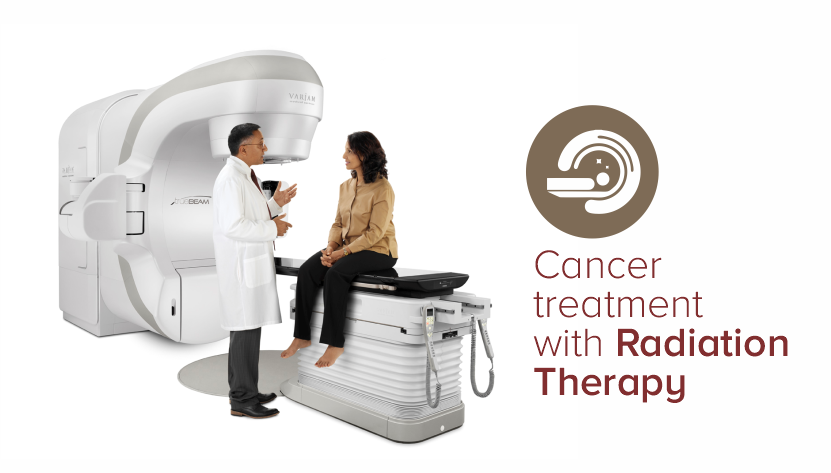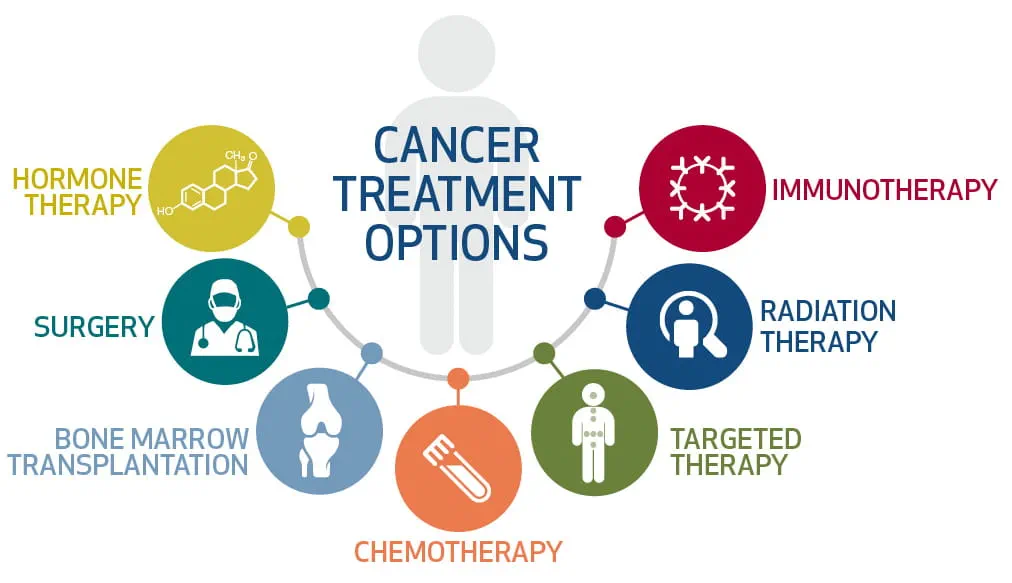What Does Arogyajivan Medical Tourism For Oncology Do?
What Does Arogyajivan Medical Tourism For Oncology Do?
Blog Article
Arogyajivan Medical Tourism For Oncology Things To Know Before You Get This
Table of ContentsArogyajivan Medical Tourism For Oncology Can Be Fun For EveryoneGet This Report on Arogyajivan Medical Tourism For OncologyThe Greatest Guide To Arogyajivan Medical Tourism For OncologyGetting My Arogyajivan Medical Tourism For Oncology To WorkWhat Does Arogyajivan Medical Tourism For Oncology Do?The 8-Minute Rule for Arogyajivan Medical Tourism For OncologyGet This Report about Arogyajivan Medical Tourism For Oncology
If you have cancer, your wellness care supplier will advise one or more ways to deal with the disease. Here is an introduction of the different treatments for cancer cells and just how they work.Cancer cells grow and divide faster than normal cells in the body. Due to the fact that radiation is most unsafe to rapidly growing cells, radiation treatment damages cancer cells a lot more than normal cells. It uses materials made by the body or in a laboratory to aid the immune system job harder or in a much more targeted means to battle cancer.
Some have contaminants or radioactive substances connected to them. Immunotherapy is provided by IV. Hormone therapy is made use of to deal with cancers that are sustained by hormonal agents, such as breast, prostate, and ovarian cancers cells. It makes use of surgery, or medicines to stop or obstruct the body's all-natural hormones. This aids slow down the development of cancer cells.
The medications are given by shot or as pills. Hyperthermia usages warmth to damage and eliminate cancer cells without hurting regular cells. It might be utilized for: A little location of cells, such as a tumorParts of the body, such as a body organ or limbThe whole body The heat is provided from a device outside the body or with a needle or probe placed in the tumor.Laser therapy utilizes an extremely narrow, focused beam of light to destroy cancer cells. Slim fibers at the end of the tube direct the light at the cancer cells. Lasers are also made use of on the skin. Lasers are most frequently made use of with various other kinds of cancer cells therapy such as radiation and radiation treatment. In photodynamic therapy, an individual obtains a shot of a medication that is delicate to a special sort of light.
Things about Arogyajivan Medical Tourism For Oncology

An oncologist is a cancer cells physician. Marketing on our website assists sustain our goal. A check out to an oncologist gives you a possibility to speak with a specialist who understands what you're going via.
They're ready to aid, and they'll walk with you every action of the method. Oncologists can: Run checks to identify cancerOffer a consultation on a previous diagnosisIdentify therapy optionsDiscuss each alternative's benefits and side effectsOversee cancer cells treatmentManage post-treatment care Seeing an oncologist doesn't necessarily indicate you have cancer. An oncologist gets entailed if you have signs and symptoms that might be cancer.
Some Known Questions About Arogyajivan Medical Tourism For Oncology.
Several cancers are more treatable in the early phases. Cancer read this article is a complex condition.
A lot of clinical oncologists likewise specialize in hematology (the medical diagnosis and treatment of blood problems and blood cancers cells). These doctor utilize radiation therapy to deal with cancer cells. Radiation can diminish tumors before surgical treatment or kill continuing to be cancer cells after surgical procedure. You might have radiation as a stand-alone treatment or in mix with various other therapies.
Indicators on Arogyajivan Medical Tourism For Oncology You Need To Know
Do I have cancer? How much time have I had it? What will my life look like now? If these from this source are the concerns racing via your mind, you're not alone. Your oncologist is below to aid you browse these emotions. Throughout your first visit, your oncologist will: Ask you to describe your signs and symptoms in detailDo a health examinationReview your clinical records, consisting of family history and any type of past or existing health and wellness conditionsRun any kind of essential examinations (like imaging tests or lab work) to read more about your symptomsDetermine whether you require a biopsyAs soon as your oncologist gathers the information look here they need, they'll: Talk about the results of your testsSend their searchings for to the healthcare company who referred youTell you whether you have cancer and if so, what kindTalk to you about different treatment optionsListen to your concerns and anxietiesGive you resources that can offer assistance and added informationYour first oncology browse through might occupy to three hours.
Oncology is the study of cancer cells. The word originates from the Greek word for tumor or mass. The medical field of oncology covers cancer cells study, danger and prevention, diagnosis, treatment, and survivorship. Experts educated in oncology give treatment for people that are at threat for cancer cells, being treated for cancer cells, and coping with cancer after therapy.

An Unbiased View of Arogyajivan Medical Tourism For Oncology
Some types of cancer occur most usually in these younger age teams. When these kinds of cancer sometimes happen in adults, those adult clients may choose to work with a pediatric oncologist.

Often when cancer is presumed yet not diagnosed, an oncologist may also be included. Lots of individuals will certainly continue seeing their oncologist for follow-up consultations to inspect for indications of cancer cells coming back and to handle any kind of side impacts from treatment.
Not known Details About Arogyajivan Medical Tourism For Oncology
If you have a cancer medical diagnosis and are considering your therapy alternatives, take into consideration joining a clinical trial. They might appear intimidating at first, scientific tests can be incredibly advantageous no matter what kind or phase of cancer cells you have. Benjamin Levy, M.D., clinical director of the Johns Hopkins Kimmel Cancer Center at Sibley Memorial Hospital and a lung cancer researcher, discusses several of the factors to join a clinical trial.
Report this page